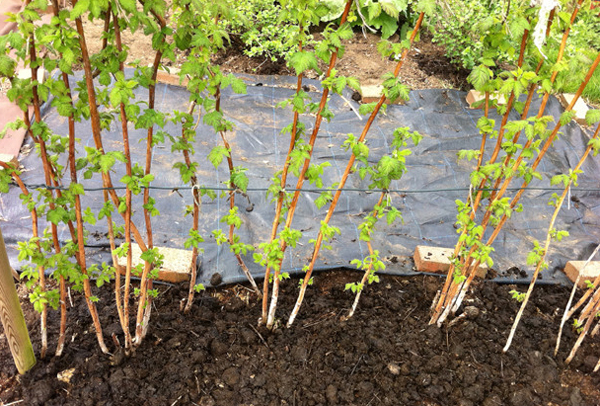
For many, a garden is a reality. However, it can be difficult for newbies. You might be wondering how to start one, what plants to plant, and how to keep them healthy. Here are some tips to help you get started with your garden. These tips will hopefully help you make the most of your new hobby. The following are a few of the most important points to consider for beginners.
Beginners are advised to plant vegetables within the first few weeks. Vegetables that aren't required to be staked or caging can also be grown in containers. These vegetables require little maintenance. If you are unsure, grow tomatoes, peas, and radishes. They are easy to grow and will give you a variety of vegetables to pick! You can grow herbs and vegetables. The key to success is getting started. Have fun!

For beginners, vegetable soups are a good choice. Good drainage is crucial. Vegetables require full sun, so a garden in a shady spot won't support all your vegetables. Drainage is also important. To ensure good water drainage, your garden should slope toward south. And if you're going to grow tomatoes, consider how much space you want to devote to a garden for them.
Garden soil is vital. Make sure you water them regularly! Having a good soil will also give you a better crop in the long run. You can add organic matter to your soil to make it more fertile and healthy. To make your soil more fertile and healthy, you can encourage earthworms. This will make your plants more productive. The most important part of your garden is the soil. Keep it as fertile as you can.
If you own a garden, make sure that it is maintained. To grow a garden, it needs patience and time. Overwatering or using too much water can be counterproductive and cause a garden to become impatient. If you don't want your garden to die, it needs to be weeded every day. Although you should be able maintain the garden by yourself, it is a good idea to have a friend help you.

After you have all the tools you need, you can begin to think about planting. You can begin with a single plant or a small shrub and then work your way up. After a while you can increase the size of your garden by adding trees and plants. You can also choose from different kinds of plants, such as the sunflowers or roses for beginners. Depending on where you live, you can choose between annual flowers or tropical plants. Each of these plants needs the right conditions to thrive.
FAQ
When can you plant flowers in your garden?
Planting flowers is best done during springtime when temperatures are milder and the soil is moist. If you live outside of a warm climate, it is best not to plant flowers until the first frost. The ideal temperature for indoor plants is around 60 degrees Fahrenheit.
What's the difference?
Hydroponic gardening makes use of nutrient-rich water rather than soil to grow plants. Aquaponics uses fish tanks to grow plants. Aquaponics is like having your own farm in your home.
Does my backyard have enough space for a garden?
If you don’t yet have a vegetable gardening, you might wonder if it will be possible. The answer is yes. A vegetable garden doesn't take up much space at all. It just takes some planning. You could make raised beds that are only 6 inches tall. Or you can use containers to build raised beds. You will still have plenty of produce, regardless of which method you choose.
What time should I plant herbs in my garden?
Herbs should be planted during springtime when soil temperatures reach 55degF. They should be in full sun to get the best results. Basil indoors can be grown in pots with potting mixture. They should be kept out of direct sunlight until they grow leaves. Once the plants begin to grow properly, you should move them into bright indirect lights. After three weeks, you can transplant them to individual pots and water them every day.
Statistics
- According to the National Gardening Association, the average family with a garden spends $70 on their crops—but they grow an estimated $600 worth of veggies! - blog.nationwide.com
- It will likely be ready if a seedling has between 3 and 4 true leaves. (gilmour.com)
- Today, 80 percent of all corn grown in North America is from GMO seed that is planted and sprayed with Roundup. - parkseed.com
- Most tomatoes and peppers will take 6-8 weeks to reach transplant size so plan according to your climate! - ufseeds.com
External Links
How To
How can I keep my vegetable garden weed-free?
Weeds pose a major threat to the production of healthy vegetables. They vie for water, nutrients sunlight and space. To prevent them from taking over your garden, use these tips:
-
Take out all flowering plants
-
Clean up any plant debris at the base
-
Mulch
-
Water regularly
-
Rotate crops
-
Don't let the grass grow too long
-
Keep soil moist
-
Plant early
-
Harvest often
-
Mix compost
-
Avoid chemical pesticides
-
Produce organic vegetables
-
Get heirloom seed
-
Start small
-
Learn more about companion planting
-
Be patient
-
Enjoy gardening!